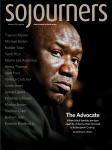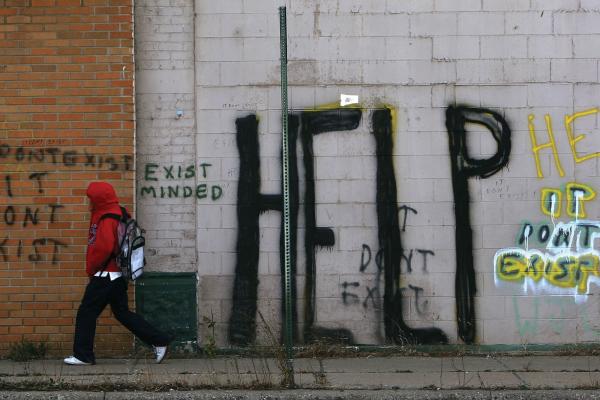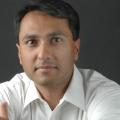MY FIRST JOB out of college was teaching at-risk black and Puerto Rican kids in an alternative high school setting. At 20 years old, fresh from a critical theory-oriented undergraduate curriculum, I basically taught what I had read in college: bell hooks, Audre Lorde, Paulo Freire, Noam Chomsky. I was thrilled to do it. After all, in front of me were the people that I had studied in those critical-theory classes—“the oppressed.” And here I was to deliver liberation.
“Is this going to get me my GED?” a skeptical student named Angel asked me at one point. “If I pass, I get $1 an hour more at Cub Foods, and my girlfriend is pregnant, so, you know, I gotta get that. I ain’t slanging [dealing drugs] no more.”
I wanted to tell Angel that I was providing him far more than material gain. I was the bearer of soul freedom.
When Joel, the math teacher at the school, caught wind of what I was doing, he about put me up against the wall. “Are you crazy?” he said. “You walk in here from your privileged life and start delivering oppressive-systems mumbo jumbo to kids who need to learn how to read? Teach them that they need to work their butts off to pass the damn test. Stop giving them an excuse to blame the system.”
It is one of the most important lessons I’ve ever gotten in my life: People closest to a tough situation usually want to find the most direct way out, not the most ideological critique of injustice.
This doesn’t mean that systemic critiques of injustice are useless. I, for one, am grateful for my critical-theory background. I think the key lesson is about context and multiple skill sets. A group of students in one situation might need to be reading bell hooks; that same group in a different situation might need to learn how to work slowly through long-form algebra.
The math teacher, Joel, by the way, was indeed a political radical. He could talk critical theory with the best of them. But he was smart enough to know that the students he was teaching in that context needed algebra more than they needed Audre Lorde.
Joel, in other words, had four key skill sets: the ability to critique systemic injustice, the ability to teach practical skills, and the ability to know when to do which.
The fourth skill? The ability to recognize that helping students learn algebra so they could get their GEDs did not make his systemic critique any less potent or his worldview any less pure.
So often I meet people who think that the only way to social change is one way, their way. It is critique or empowerment, justice or service.
The people I admire most have the rare ability to do both, and to see them as parts of the whole rather than wholes unto themselves.

Got something to say about what you're reading? We value your feedback!

